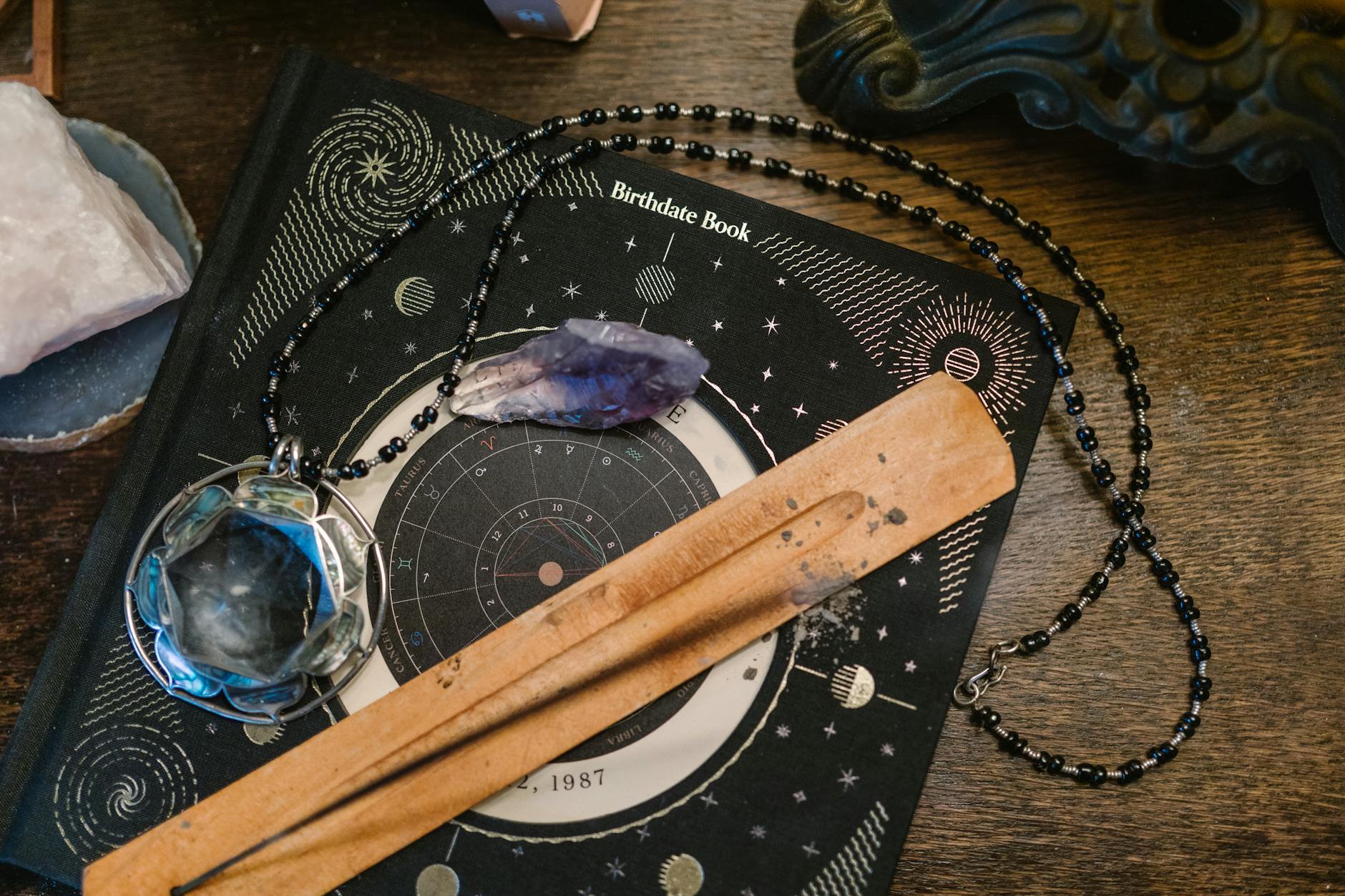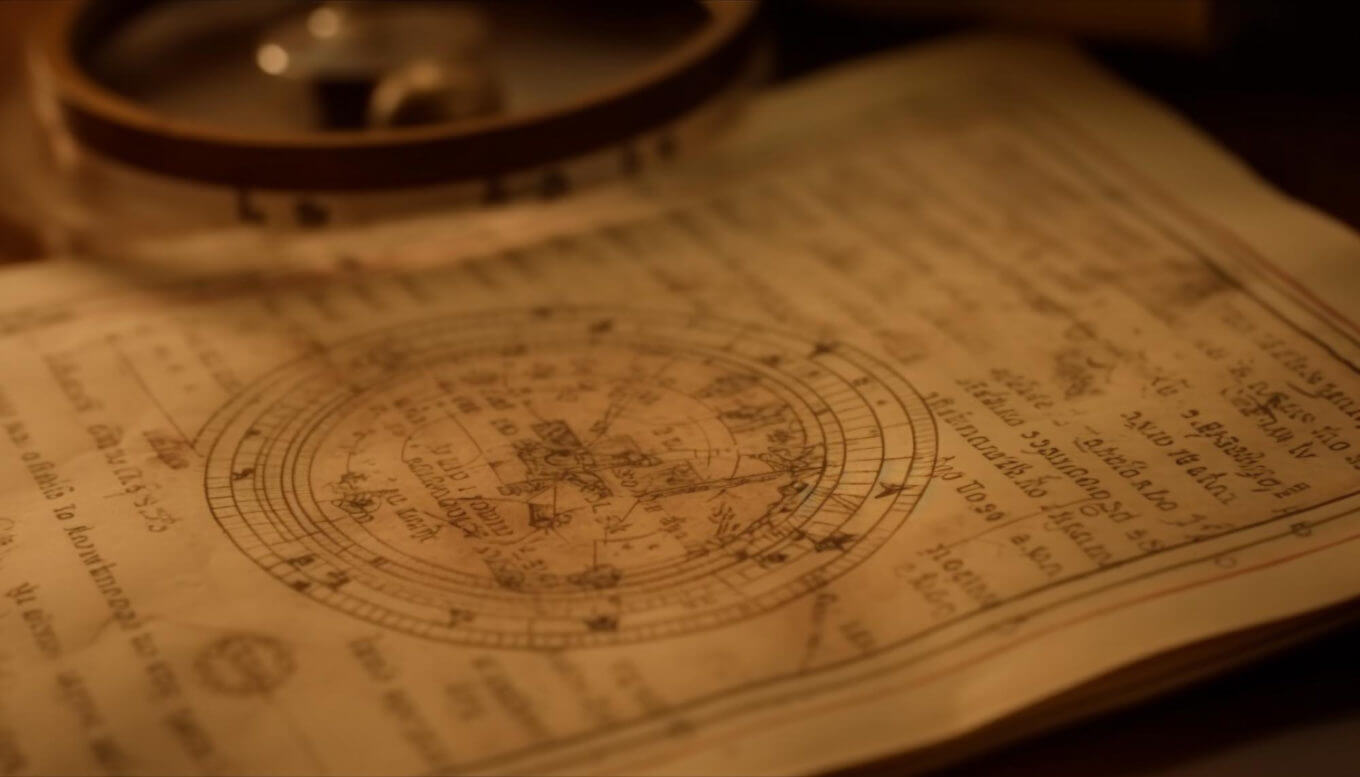Are you curious about ancient divination practices?
From runes to scrying, these mystical methods have been used for centuries to gain insight into the unknown. In this article, I will explore the rich history and powerful significance of tarot, runes, and scrying.
Whether you are a novice or a seasoned practitioner, join me on a journey to uncover the secrets and wisdom of these ancient divination arts.
The Art of Ancient Divination
Divination, the practice of seeking knowledge of the unknown by supernatural means, has deeply rooted historical significance across various cultures and civilizations. The methods of divination have evolved over time, encompassing a wide array of practices and tools. The concept of divination is centered around the belief that there are hidden truths or insights that can be revealed through specific rituals or actions.
Defining Divination
Divination, derived from the Latin word “divinare,” meaning to foresee or be inspired by a god, has been an integral part of human history for centuries. It involves seeking understanding and insight into a question or situation through unconventional means. The interpretations derived from divination practices are believed to provide guidance, clarity, and foresight into the past, present, or future.
Historical Roots
The origins of divination can be traced back to ancient civilizations such as the Mesopotamians, Egyptians, and Greeks. These cultures employed various forms of divination, ranging from reading celestial patterns to interpreting the flight patterns of birds. The practice of divination was often intertwined with spiritual and religious beliefs, with practitioners including oracles, priests, and shamans.

Rune Casting – The Nordic Connection
In the ancient world, runes were more than just letters – they were symbols of power and magical significance for the Nordic people. The origins of runes can be traced back to the Elder Futhark, an ancient Germanic runic alphabet. Each rune carries its own distinct meaning, representing concepts such as strength, protection, and transformation. The runic alphabet was believed to have been a gift from Odin, the chief of the Norse gods, after he sacrificed himself to gain knowledge.
Origins of Runes and Their Meanings
The runic alphabet consists of 24 symbols, each with its own name and corresponding sound. These symbols were not only used for communication but also held deep spiritual and divinatory significance. For example, the rune “Fehu” represented wealth and cattle, while “Uruz” signified strength and endurance. The meanings of these runes were rooted in the daily lives and beliefs of the ancient Germanic tribes, making them an integral part of their culture and spirituality.
How the Vikings Used Runes to Foresee the Future
For the Vikings, runes were much more than a writing system – they were a tool for divination and foresight. The practice of runic divination, known as “rune casting,” involved tossing or laying out the runic symbols and interpreting their positions and relationships to discern future events or gain insight into current situations. Vikings sought guidance from runic inscriptions before embarking on voyages, engaging in battles, or making important decisions, believing that the runes could reveal the intentions of the gods and influence the course of events.
 Photo by Dagmara Dombrovska
Photo by Dagmara Dombrovska
Scrying – The Mysterious Mirror to the Unknown
Scrying, a practice dating back to ancient times, involves gazing into a surface to achieve visions and insights. This mystical art is believed to have originated from early civilizations that used reflective surfaces such as water, polished metal, or crystals to gain spiritual guidance. The act of scrying is often associated with uncovering hidden knowledge and connecting with the spiritual realm.
What is Scrying and How Did it Begin?
Scrying, also known as crystal gazing or seeing, is a method of divination that seeks to reveal the unseen through visions perceived in a reflective medium. This esoteric practice has roots in various cultures throughout history, with early references found in ancient texts and archaeological discoveries. The concept of scrying has been linked to the belief in clairvoyance and the ability to perceive images beyond the physical world.
Techniques and Tools for Scrying Across Cultures
Scrying techniques vary across different cultures and traditions, each utilizing distinct methods and tools for the practice. Common instruments include crystal balls, mirrors, black mirrors, and bowls of water. The process may involve focusing on the reflective surface under specific lighting conditions or incorporating rituals and meditative practices to enhance receptivity to visions. From the ancient civilizations of Egypt and Rome to the mystical traditions of Celtic and Norse cultures, scrying has taken on diverse forms and interpretations, reflecting the universal human desire to seek knowledge beyond the visible realm.
Scrying offers a fascinating glimpse into the enigmatic world of divination, where the ancient art of gazing into reflective surfaces continues to captivate seekers of ancient wisdom and spiritual insight.
The Flight of Birds – Reading the Skies
Each time I look up at the sky, I can’t help but be in awe of the effortless grace with which birds soar through the air. This extraordinary display has led to the use of bird flight and behavior as a form of divination across many cultures. In this section, we’ll journey through the significance of bird flight and explore the art of interpreting bird signs and omens.
Augury and the Roman Empire
 Photo by Tina Nord
Photo by Tina Nord
In ancient Rome, the practice of augury involved observing the behavior and flight patterns of birds to predict future events. Augurs, or priests, would carefully study the flights of birds, known as “taking the auspices,” to gain insight into matters of state, war, and everyday life. The direction, type of bird, and sounds made were all meticulously interpreted to uncover hidden messages from the gods. The influence of augury on decision-making in the Roman Empire was profound, with leaders seeking divine guidance through the observation of bird flight.
Interpreting Bird Signs and Omens
The way birds move through the sky has long been believed to convey messages from the spiritual realm. For instance, the sudden appearance of a specific bird during a significant event or the behavior of a flock crossing one’s path was thought to carry symbolic meaning. Different species of birds were associated with distinct qualities, and their flight patterns were seen as indicators of impending fortune or misfortune. The interpretation of bird signs and omens varied across cultures, yet the reverence for these winged messengers was a common thread connecting societies throughout history.
The next time you witness the elegant dance of birds across the heavens, consider the profound significance attributed to their flight and remember that the skies have served as a timeless canvas for divination through the ages.
Tasseography – Tea Leaves Telling Tales
Sitting down with a warm cup of tea isn’t just a soothing ritual; it’s an opportunity to embark on a journey through the art of tasseography. As the fragrant steam rises, the leaves settle, and the divination begins. Tasseography, or tea leaf reading, is an ancient practice that invites us to seek wisdom in the patterns formed by tea leaves at the bottom of a cup.
The Ritual of Tea Leaf Reading
Engaging in the ritual of tasseography involves focused attention and a meditative mindset. It’s essential to have a calm and quiet environment to allow for clear interpretations. The process typically begins with the querent (the person seeking the reading) holding a specific question or intention in mind while sipping the tea. Once the liquid has been consumed, the remaining tea leaves are swirled around the cup or overturned onto a saucer. The reader then examines the patterns and symbols that have formed, using intuitive discernment to interpret their meanings.
Understanding Symbols in the Cup
When delving into the world of tasseography, it’s crucial to understand the symbols that may appear in the tea leaves. Common symbols include animals, shapes, letters, and everyday objects, each carrying its own unique significance. For instance, a heart shape may denote love or affection, while a snake could represent transformation or healing. The position of the symbols in the cup also plays a role in the interpretation. The handle of the cup often signifies time frames, with the area closest to it representing the present and the opposite side symbolizing the future. Embracing these symbols and their placement in a holistic context allows for a comprehensive and insightful reading.
Tasseography encapsulates the magic and allure of ancient divination practices, inviting us to connect with the art of interpreting symbols and finding meaning in the everyday. As we take a sip from our cups, we embark on a journey through the intricate patterns of the tea leaves, unveiling tales of insight and revelation.
Remember, the next time you lift your cup, the leaves may just be whispering secrets waiting to be heard.
The I Ching – The Book of Changes
The I Ching, also known as the “Book of Changes”, is a significant ancient Chinese divination text that explores the fundamental principles of change and transformation. Rooted in the philosophy of Taoism, it emphasizes the interconnectedness of all things and the cyclical nature of existence.
The Philosophy Behind I Ching
The I Ching philosophy is based on the concept of balance and harmony within the universe. It delves into the idea that everything is in a constant state of flux, and that understanding and adapting to change is crucial for attaining harmony in life. Practitioners of the I Ching believe that the universe operates according to a natural order, and by aligning oneself with this order, one can gain insight into the flow of life.
Casting I Ching Coins and Hexagrams
Casting I Ching coins is a traditional method used to generate hexagrams, which are six-line symbols that represent different combinations of yin and yang energy. By casting coins or sticks, practitioners create hexagrams that provide guidance and insight into specific questions or situations. Each hexagram carries a unique meaning, offering wisdom on how to navigate challenges and make decisions in alignment with the natural order of the universe.
Astrology – Mapping the Stars for Answers
Astrology has been a fascinating tool for seekers of knowledge, offering insights into the human experience through celestial patterns and movements. Embarking on an astrological journey involves delving into the rich history of the Zodiac signs, horoscopes, and the significance of astrological charts in the realm of divination.
The Zodiac and Horoscope Histories
The Zodiac, a circle of celestial longitude, is divided into twelve signs, each linked to specific personality traits and symbolic meanings. Ancient civilizations, such as the Babylonians and Egyptians, developed the foundation of the Zodiac, attributing cosmic significance to the movements of the sun, moon, and planets. From Aries to Pisces, each Zodiac sign encapsulates a unique blend of characteristics that contribute to the intricate tapestry of astrological interpretations.
Astrological Charts and Their Role in Divination
Astrological charts, also known as birth charts or natal charts, serve as pivotal tools in the practice of divination. By mapping the precise positions of celestial bodies at the time of an individual’s birth, astrologers gain profound insights into personality traits, potentials, and life events. These intricate charts, consisting of planets, houses, and aspects, offer a roadmap for self-discovery and provide guidance on navigating the inherent energies bestowed at the moment of birth.

Palmistry – Lines of Life and Love
Palmistry, also known as chiromancy or palm reading, is a practice that has been around for centuries. The lines, mounts, and shapes of the hand are believed to reveal a person’s character, fortune, and future. Each hand and finger has a unique pattern of lines and marks, and palm readers interpret these to offer insights into various aspects of a person’s life.
The Practice of Reading Palms
When it comes to palmistry, the hands are the focal point of analysis. The dominant hand is considered to represent the conscious mind, while the non-dominant hand represents the subconscious. Typically, the lines on the dominant hand change due to the choices we make, whereas the non-dominant hand is seen as our innate characteristics.
Deciphering the Heart Line, Life Line, and More
Palmistry involves the examination of several key lines, including the heart line, life line, head line, and fate line. The heart line reflects emotional stability and romantic experiences, while the life line offers insights into physical health and general well-being. The head line is associated with intellect and learning, and the fate line is believed to indicate the degree to which an individual’s life is affected by circumstances beyond their control.
Crystal Gazing and Energy Interpretation
Crystal gazing, also known as scrying, has been a prevalent divinatory practice using reflective surfaces such as crystals and gemstones to gain insight and clarity. By gazing into a crystal, individuals seek to interpret visual impressions and symbols that come to mind. This practice aims to tap into the subconscious and connect with spiritual energies to gain intuitive knowledge about the past, present, or future. The process of crystal gazing is similar to interpreting dreams, where the mind’s eye opens to receive messages that are then deciphered for personal guidance.
 Photo by Michelle Leman
Photo by Michelle Leman
Popular Crystals and Their Divinatory Properties
- Amethyst
- Associated with promoting intuition and spiritual wisdom.
- Used for enhancing psychic ability and connection to higher realms.
- Clear Quartz
- Known as a master healer and amplifier of energy.
- Used for clarity, focus, and amplification of intentions.
- Rose Quartz
- Represents love, compassion, and emotional healing.
- Used for matters related to relationships, self-love, and harmony.
- Obsidian
- Symbolizes protection and grounding energy.
- Used for shielding from negativity and releasing emotional blockages.
- Citrine
- Linked to abundance, joy, and manifestation.
- Used for attracting prosperity, confidence, and positive energy flow.
Incorporating these crystals into divination practices aligns with harnessing their unique energies and properties, thereby aiding in the interpretation of intuitive messages and spiritual guidance.
Conclusion
Exploring ancient divination practices, from runes to scrying, has been a fascinating journey into the mystical world of gaining insight and guidance. Each method offers a unique approach to connecting with the spiritual realm and accessing valuable information beyond the scope of science and logic.
The rich history and symbolism of tarot cards have provided countless individuals with profound insights and guidance, making it one of the most popular methods of divination today. The Major and Minor Arcana cards offer a comprehensive understanding of life’s big themes and everyday experiences, providing valuable guidance for personal growth and self-discovery.
Engaging in simple exercises, such as choosing a card from your tarot deck at random and reflecting on its symbolism and message, can be an effective way to start building a deeper connection with the ancient art of tarot reading. Similarly, exploring the intriguing practice of scrying and interpreting the patterns of runes can open doors to new perspectives and understanding.
In conclusion, delving into the ancient divination practices of tarot, runes, and scrying can offer profound insights and guidance for those seeking to connect with the spiritual realm and gain a deeper understanding of themselves and the world around them.
